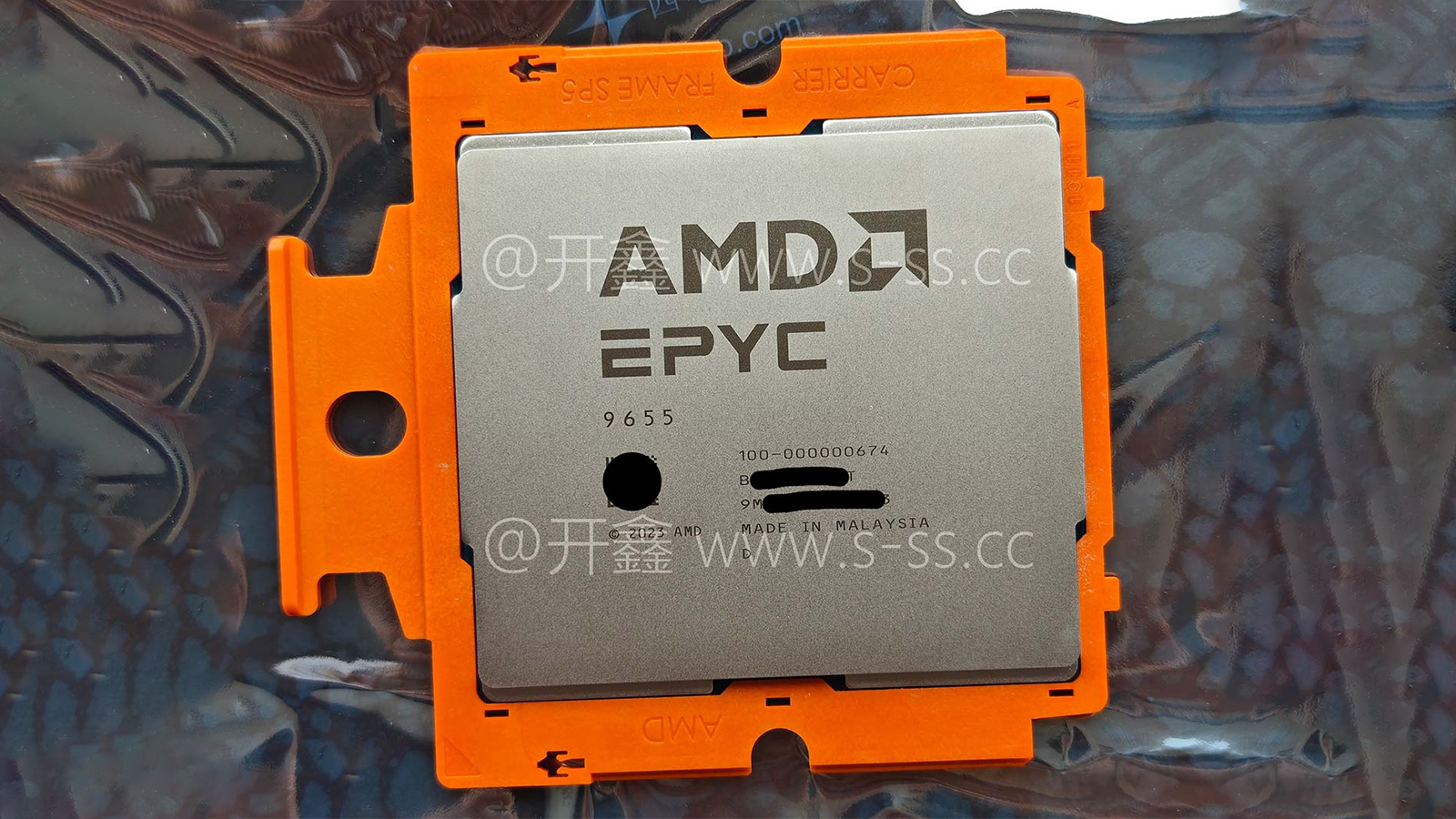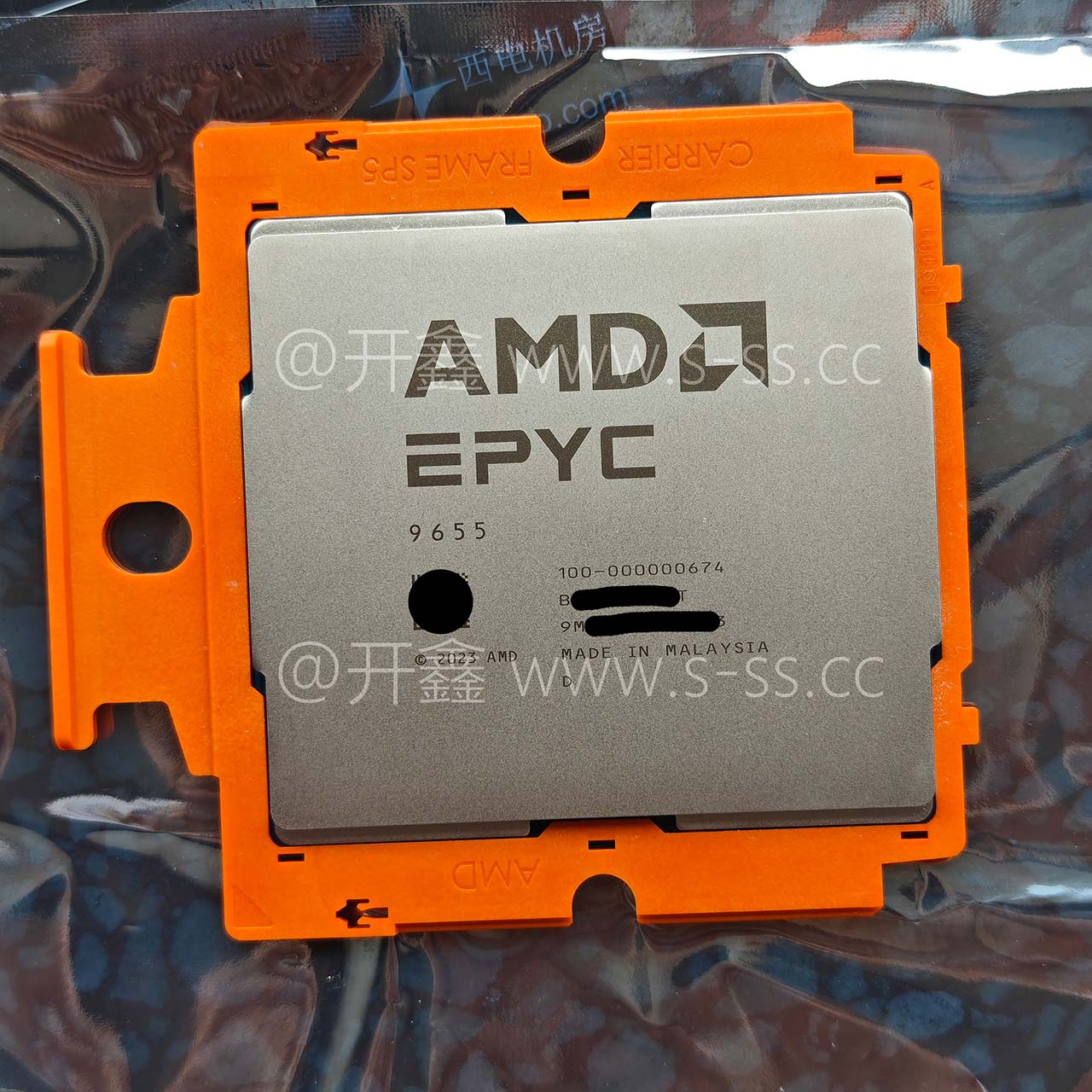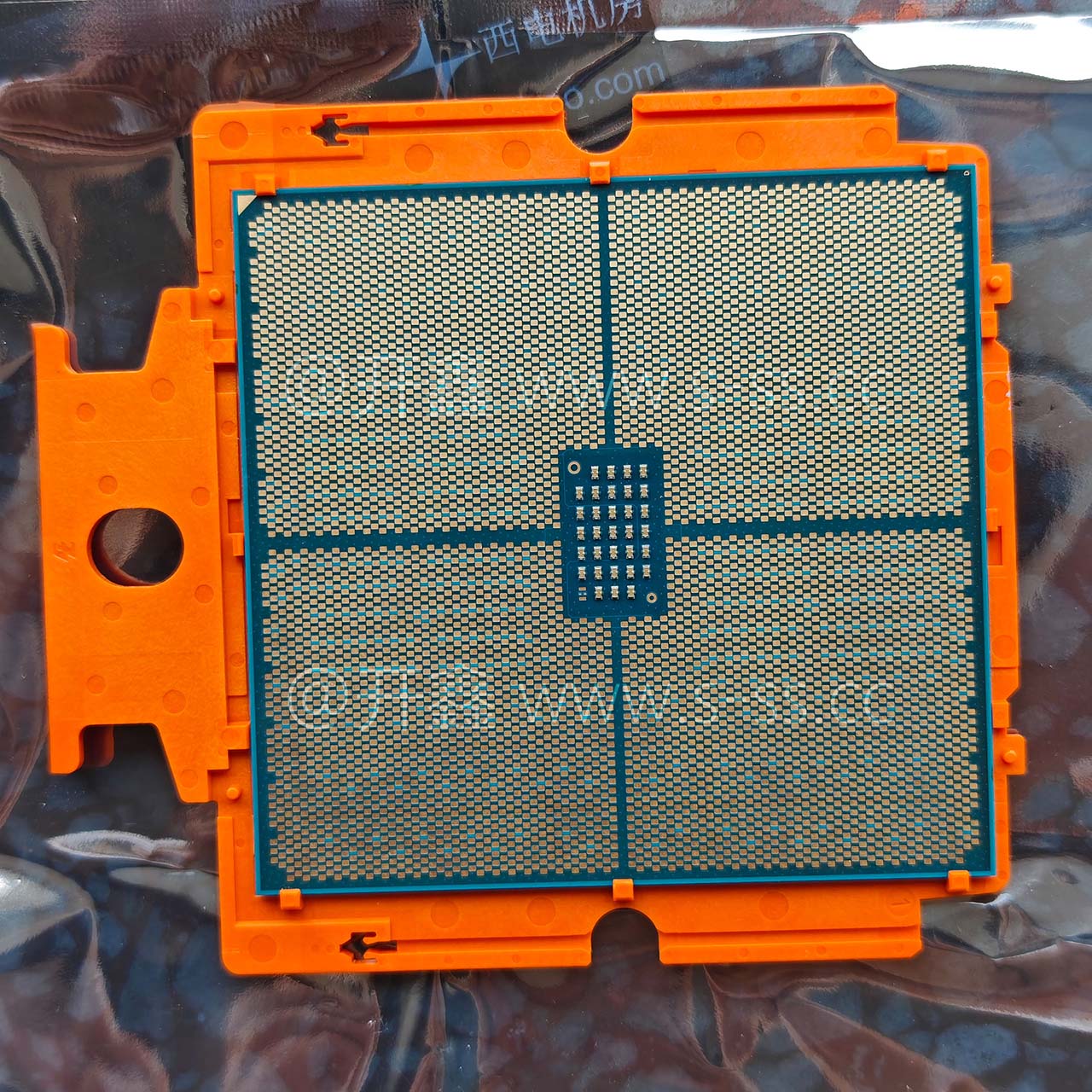
While AMD is gearing up to formally introduce its next-generation EPYC 'Turin' processors based on the Zen 5 microarchitecture, some of these CPUs are already available for sale in China, reports a member of the Chiphell forum. There is a catch about these processors, though: they are samples, and for now, they cannot work on existing SP5 motherboards.
A friend of the blogger has reportedly acquired AMD's 96-core EPYC 9655 'Turin' processor with a 400W TDP for 'a lot of money'. In contrast, the forum member has located a 128-core EPYC 9755 processor with a 500W TDP on sale by 'a source,' though he does not mention the price. Yet, the picture of AMD's EPYC 9655 speaks for itself and implies that these CPUs can be obtained in China even by people who are not supposed to have them now.
China continues to be a significant maker of servers, so AMD sends engineering and qualification samples of its upcoming CPUs to various manufacturers. From time to time, those processors find their way to internet auctions or retail markets and can be bought ahead of their release.


There is, of course, a problem with obtaining these CPUs. Their support has to be added to the BIOS of motherboards, so while technically both EPYC 9655 and EPYC 9755 are compatible with SP5 platforms used by AMD's EPYC 9004-series processors based on the Zen 4 microarchitecture, they cannot work in commercially available servers and motherboards for now as Zen 5-supporting UEFI BIOSes are expected to be released in October, ahead of the formal EPYC 9005-series launch later this year.
Another thing about AMD's EPYC 9655 and EPYC 9755 is that they are rumored to have default TDPs of 400W and 500W, respectively. While there are platforms designed for EPYC 9004X CPUs with a 400W TDP, and technically, an SP5 socket can deliver a peak power of 700W to a processor, it looks like EPYC 9005-series CPUs rated for a 500W thermal design power will require qualification on existing platforms (i.e., they might now work in all of existing servers properly). That said, buying these early samples may not make sense for now.







